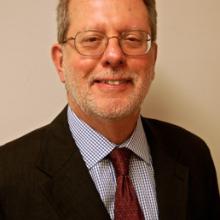free market
For much of its long history in the U.S., the Catholic Church was known as the champion of the working class, a community of immigrants whose leaders were steadfast in support of organized labor and economic justice – a faith-based agenda that helped provide a path to success for its largely working-class flock.
In recent decades, as those ethnic European Catholics assimilated and grew wealthier, and as the concerns of the American hierarchy shifted to battles over moral issues, such as abortion and gay marriage, traditional pocketbook issues took a back seat.
WHAT IS THE relationship between one’s religious beliefs and one’s economic and political views? Are some religious beliefs more “American” than others?
These questions come to mind in reading Samuel Gregg’s Tea Party Catholic: The Catholic Case for Limited Government, a Free Economy, and Human Flourishing. Gregg suggests that religion directly informs—or should inform—our understanding of political and economic issues and that religious, economic, and political liberty are inextricably bound. A perceived or real “attack” on one, he contends, is an attack on all.
Gregg is director of research for Acton Institute, a libertarian think tank whose core principles seek the “integrating [of] Judeo-Christian truths with free market principles.”
In Tea Party Catholic Gregg writes of a “new type of Catholic American” who is grounded in a “dynamic sense of orthodoxy” but whose “Americanness” is defined by faith in free market principles. Tea Party Catholic details how free market principles and a view of government “with clear but constrained economic functions” have, Gregg argues, not only deep roots in U.S. political history but also in Catholic tradition. Thereby, he suggests, any U.S. Catholic differing in his or her economic and political beliefs has neither a proper understanding of the United States’ founding nor of the teachings of the Catholic Church.
Gregg’s attempt to sacralize libertarianism is not consistent with Catholic doctrine: It runs counter to stated positions of the Vatican and the majority of Catholic theologians and economists. At a recent conference at The Catholic University of America one of Pope Francis’ advisers, Cardinal Oscar Rodríguez Maradiaga, said that in commenting on free market and libertarian influences on our global economy, Pope Francis gave a “sharp prophetic verdict: ‘This economy kills.’”
In a marketplace unfettered by ethical restraint, a sense of duty, concern for others, or even basic shame, 25 hedge fund managers gave themselves a 50 percent pay boost in 2013.
Never mind that hedge funds’ performance, on average, tanked for the fifth consecutive year.
These 25 men wanted big bucks, so they took them: a total of $21 billion. All for managing wealth that someone else created and, except for a few, not managing it particularly well.
The top earner paid himself $3.5 billion for 2013.


